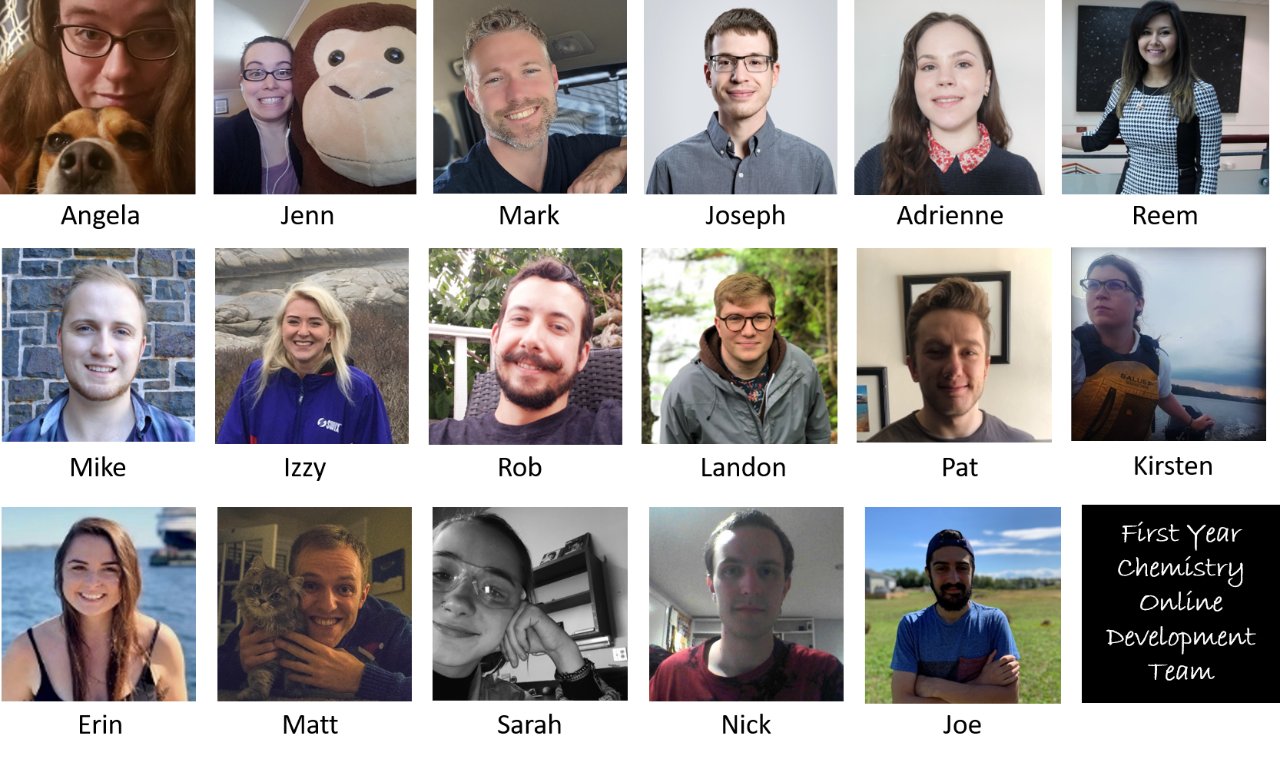D2L Innovation in Teaching and Learning Award
ÐӰɵ¼º½'s First Year Chemistry Online Development Team is the recipient of a 2022 .
The annual award recognizes post-secondary collaborative teams for their innovative approaches that promote student-centred teaching and learning.

First Year Chemistry Online Development Team
- Dr. Angela Crane (Senior Instructor, First Year Program Coordinator), Department of Chemistry, ÐӰɵ¼º½Â
- Dr. Jennifer L. MacDonald (Instructor, University Teaching Fellow), Department of Chemistry, ÐӰɵ¼º½
- Dr. Mark Wall Instructor (PTA), Department of Chemistry, ÐӰɵ¼º½
- Dr. Joseph Tassone (Postdoctoral Fellow) Ellman Lab, Yale Univeristy
- Adrienne Allison (PhD Candidate), Department of Chemistry, ÐӰɵ¼º½
- Reem Karaballi (PhD Student), Department of Chemistry, ÐӰɵ¼º½
- Michael Charlton (Graduate TA), Department of Chemistry, ÐӰɵ¼º½
- Isabel Curtis (Graduate TA), Department of Chemistry, ÐӰɵ¼º½
- Robert Foisy (Undergraduate TA), Department of Microbiology & Immunology, ÐӰɵ¼º½
- Landon Getz (PhD Candidate), Department of Microbiology & Immunology, ÐӰɵ¼º½
- Patrick Giesbrecht (PhD Candidate), Department of Chemistry, ÐӰɵ¼º½
- Kirsten Jones (Graduate TA), Department of Chemistry, ÐӰɵ¼º½
- Erin Lyle (Graduate TA), Department of Chemistry, ÐӰɵ¼º½
- Matthew Margeson (PhD Student), Department of Chemistry, ÐӰɵ¼º½
- Sarah Martell (PhD Candidate), Department of Chemistry, ÐӰɵ¼º½
- Nicholas Roberts (Undergraduate TA), Department of Chemistry, ÐӰɵ¼º½
- Joseph Weatherby (Graduate TA), Department of Chemistry, ÐӰɵ¼º½
Bringing First Year Chemistry Online with Students as Partners through Universal Design
During the COVID-19 pandemic, an innovative Students-as-Partners collaboration was utilized to build short screen-capture video content and interactive quiz-style questions. Lab content was brought to life through a 360° interactive lab tour, experimental content delivery to support real-time data/observation acquisition and the ability to make experimental mistakes and see the results of those errors. Students could choose the way they wished to view an experiment, which greatly helped those with colour vision deficiencies or devices with low-resolution. Over 50 custom interactive online modules (containing over 1000 videos!) have been created and successfully delivered to over 2600 students across various faculties.
